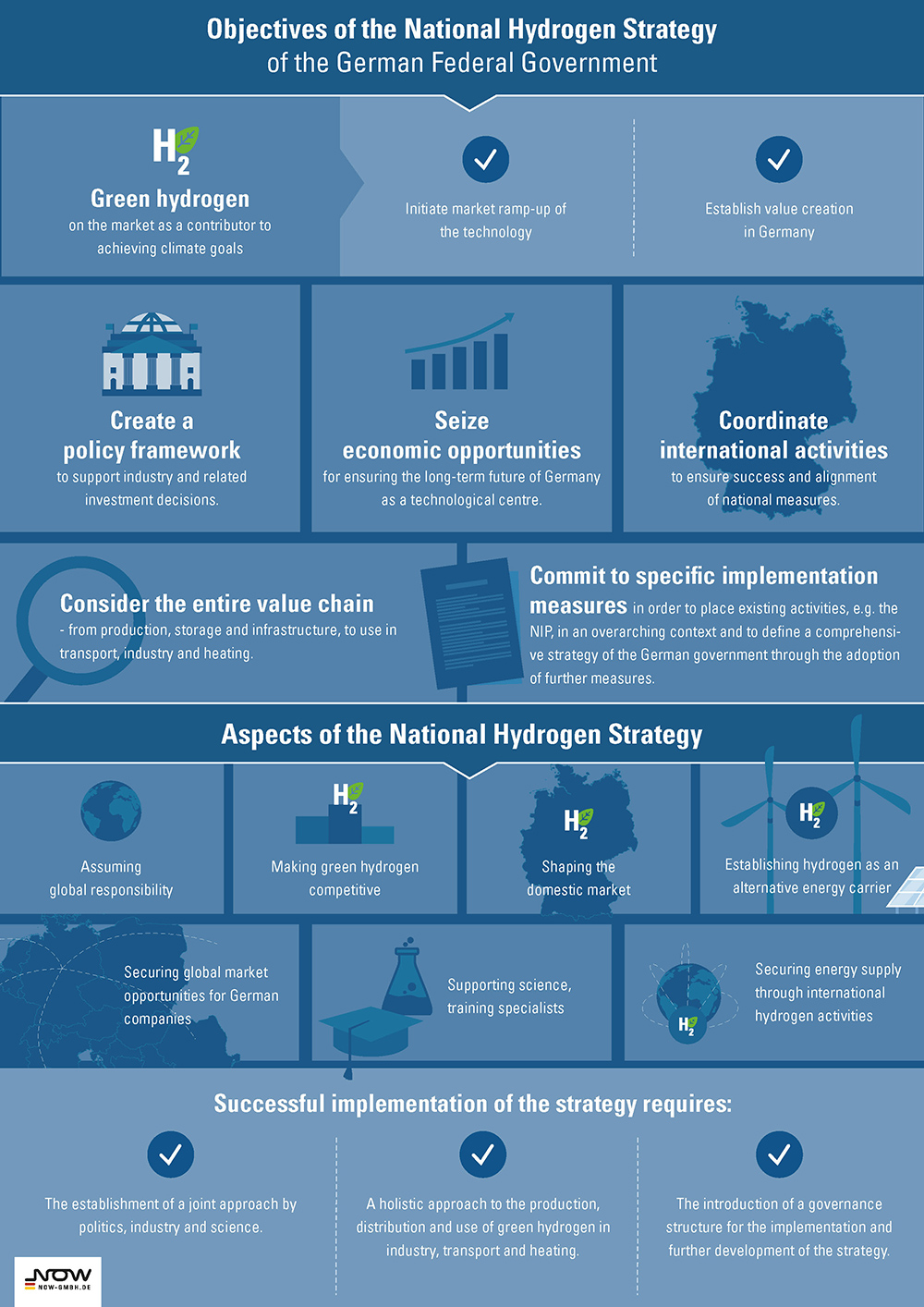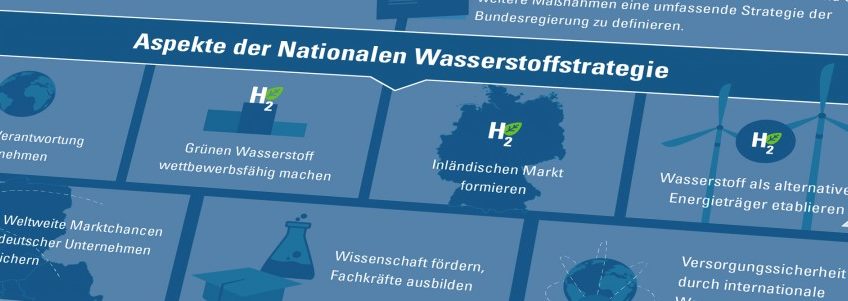Hydrogen is a pivotal element in achieving the climate change goals Germany is primed as a technology location and will benefit along the entire value chain of production, storage and utilisation Both funding support and regulatory adjustments are needed for the market ramp-up of hydrogen technologies Many of the hydrogen strategy measures use approaches from the National Innovation Programme for Hydrogen and Fuel Cells or can be connected to them
Berlin, 10 June 2020 – With the adoption of a national hydrogen strategy, the German government has committed itself to the pivotal importance of hydrogen for achieving the climate goals. Only by using hydrogen as an energy carrier can CO2 emissions be reduced by 55% by 2030 and up to 95% by 2050 in all energy consumption sectors. With the hydrogen strategy as a central part of the German economic stimulus and future package (“Konjunktur- und Zukunftspaket”), the federal government is setting the course for the development of new industrial structures and thus new areas of value creation and future-proof jobs in Germany.
Kurt-Christoph von Knobelsdorff, Managing Director, NOW GmbH:
“With the National Hydrogen Strategy, Germany is finally making the leap into a sustainable energy system. Renewable energies must penetrate all sectors extending from the transport and industrial to the heating sector. To achieve this, electrons and molecules are needed, i.e. electricity as well as hydrogen and its derivatives. The hydrogen strategy is the long-awaited breakthrough for Germany as an industrial and technological location, which has been a world leader in the field of hydrogen for many years. It sets the stage for the broad application of hydrogen technologies and provides the necessary funding for the market ramp-up.”
The regulatory measures addressed in the strategy are at least as important as the funding. “In order to ensure that the momentum of the strategy is not lost, the announced exemption of electrolysis electricity from the German Renewable Energy Sources Act (EEG – Erneuerbare-Energien-Gesetz) levy and the ambitious implementation of RED II should now proceed quickly and convincingly. Only in this way will companies receive the investment security they need,” continues Knobelsdorff.
The federal government has been supporting the technological development and market ramp-up of such products for years in its National Innovation Programme Hydrogen and Fuel Cell Technology (NIP). Many of the measures adopted in the national hydrogen strategy pursue approaches such as those already developed in the NIP, which is coordinated by NOW GmbH, or can be linked to existing projects.
Knobelsdorff: “The NIP has laid an excellent foundation for many of the hydrogen strategy measures. Among these are the establishment of a refuelling infrastructure currently comprising almost 90 stations, the HyLand funding programme for hydrogen regions, the strengthening of the supply industry and also the support of secondary products (PtX) made from hydrogen. The hydrogen strategy confirms these priorities and contributes additional drive to further implementation.”
NOW GmbH – Towards Zero Emission Mobility
NOW GmbH is committed to promoting a comprehensive approach to clean and efficient electric mobility in an integrated energy system with the key technologies battery, hydrogen and fuel cell. With its technical expertise, NOW GmbH coordinates funding programmes in the field of alternative fuels and drives, and advises the German federal government in these areas. It analyses and evaluates relevant projects and studies, develops strategies for implementing new and existing programmes and instruments, and provides input to the regulatory framework at both the national and European level.



